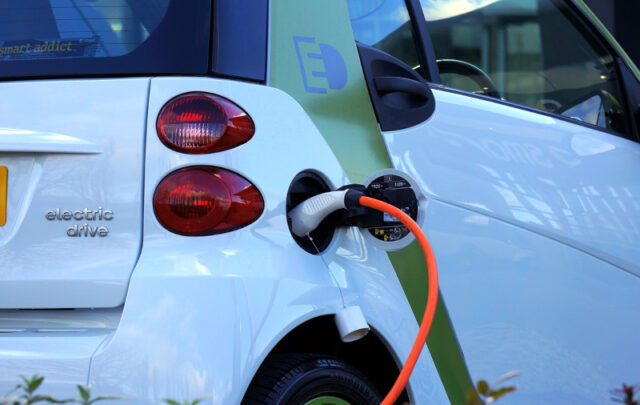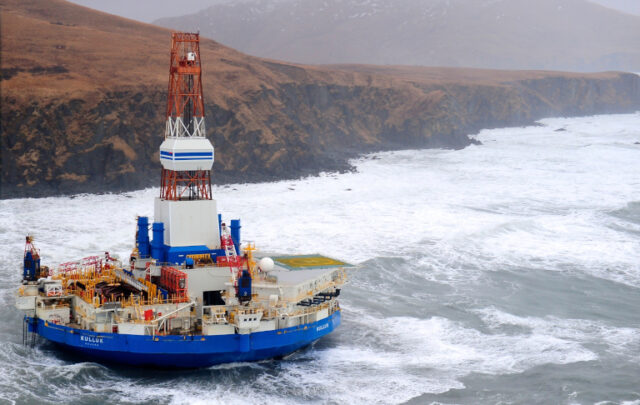So far rising gas prices have had little effect on North American consumption patterns. There are nagging fears that consumer’s discretionary spending is being squeezed, but so far people are still buying. Buying big trucks to commute big miles to their big mortgage house in the exurbs. Drivers expect to hit the holiday highway in big numbers as usual this summer.
But high fuel prices are seriously exacerbating basic survival problems in those many developing countries with limited oil reserves. Some countries are already having a very hard time keeping their economies from drowning in the rising tide of fuel prices. (You can find an informative table delineating the oil access problem for several African countries here)
This silent crisis receives almost no attention in the developed world media; it is certainly not on the minds of Joe Sixpack as he complains at the pump. The precarious position of millions of our fellow global citizens seems to be below the radar, not a factor to be considered at all in how movers and shakers, planners and public go about creating our future.
But the ethical and practical considerations of drowning Third World economies must be a consideration in how we spend our own fuel budget and how we spend our investment dollars. And future triple digit prices per barrel of oil should be something we are thinking about now even if only for the possible contagion danger of failed states.
A local example:
There are plans to build a new waterfront stadium for soccer and concert entertainment in Vancouver where I live. At a recent planning meeting over a hundred concerned citizens and organizations submitted briefs or spoke to city council about this proposed development. A 15,000 seat stadium downtown in our wonderful and fortunate city is not a big thing. But it is an example of denial and indifference because the end of cheap oil and what it means for our common future was not included in this input, was not included in planning and in city council deliberations, was not on the menu for public debate about this stadium.
Pro sports are a luxury we can no longer afford in a world facing dangerous climate change and where $75 a barrel oil is already straining the budgets of most Third World countries and threatening their development future.
I’m a fan – had fun this World Cup and fondly remember the great Whitecap cup run in 79 – but even if it is ‘our oil’ (this distillation of millions of years of stored sunlight), and we (very optimistically) believe that future generations of Vancouverites will have energy sources equivalent to fossil fuels, consider what it could be like watching a game or concert in 2010 when oil is $200 a barrel and millions are starving to death worldwide.
Denial and refusal to shrink our obese material demands will lead to demand destruction in India, Indonesia, Bangladesh, etc., instead. Where we can least afford it. We can enjoy local sports – pro sports are a luxury we can no longer afford. There is no shortage of wonderful music in existing venues in Vancouver.
And if we are going to get serious about climate change does it make sense to have hundreds of pro sport teams criss-crossing the continent spewing CO2? Are we going to treat the Whitecaps and Canucks as sacrosanct and consider the NHL, NFL or MLS more important than increased damage from storms, insect infestations, drought or biodiversity loss? Or maybe even human extinction?
Pro sports are one example of a host of goods and services that we have come to regard as necessities but which are now luxuries we can no longer afford. You can wade, paddle, swim, canoe, kayak, sail or surf – aren’t powerboats and jet skis luxuries we can no longer afford?
Most of us think tourism is basically a good thing, but surely tourism is now luxury travel in our present circumstances when you calculate the fuel costs, the greenhouse gas costs and the added increment to our already bloated individual ecological footprints.
In his very informative book ONE WORLD philosopher Peter Singer explains that globalization has expanded our ethical sphere to include everyone on the planet. But decision making in our market economy doesn’t quantify, factor in and price consequences of our actions beyond supply and demand. The guy at the pump (supposedly) rules.
So there isn’t even informed debate about these very real problems with investing in a new stadium.
As Øystein Dahle, former vice president of Exxon for Norway and the North Sea, has pointed out, “Socialism collapsed because it did not allow the market to tell the economic truth. Capitalism may collapse because it does not allow the market to tell the ecological truth.”





